June 15, 2016
Edited by David Sanders
Specimen Days
1809—François-Xavier Garneau, French-Canadian poet and historian (d. 1866), is born.
1888—Ramon Lopez Velarde, Mexican poet (La Sangre Devota), is born.
1920—Amy Clampitt, American poet (The Kingfisher), born in Iowa (d. 1994), is born.
1925—Jaime Sabines, Mexican poet (Tarumba, Maltiempes), is born.
1927—Ibn-e-Insha, Pakistani humourist and Urdu poet (d. 1978), is born.
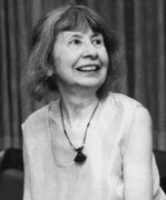
The process
goes on forever: they came from sand,
they go back to gravel,
along with treasuries
of Murano, the buttressed
astonishments of Chartres,
which even now are readying
for being turned over and over as gravely
and gradually as an intellect
engaged in the hazardous
redefinition of structures
no one has yet looked at.
—from “Berach Glass” by Amy Clampitt (1920-1994)
“The process / goes on forever: they came from sand, / they go back to gravel”—Amy Clampitt
World Poetry
Moshe Dor, a Founding Father of Israeli Poetry, Dies at 83

Poet, translator and writer Moshe Dor died on Sunday at 83. He was one of the founding fathers of Israeli poetry, alongside Aryeh Sivan and Moshe Ben-Shaul. A prolific writer, Dor published 18 poetry books for adults and another five for children. He was also a noted translator of American poetry.
Iran’s Revolutionary Poet Hamid Sabzevari Dies at 91
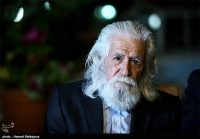
Hamid Sabzevari, an Iranian poet who is mostly known for the works composed in the heat of the Islamic Revolution and the early years after the historic event, died at the age of 91 at Tehran’s Asia Hospital on Friday night. He was suffering from Alzheimer’s disease. “My father had left Tehran over the past few days to take a rest in Karaj; however, we transferred him to the hospital on Friday after his illness worsened and unfortunately he died at 10 p.m.,” Sabzevari’s son, Mohsen, told the Persian service of ISNA on Saturday.
Hamid Sabzevari, an Iranian poet who is mostly known for the works composed in the heat of the Islamic Revolution, died at the age of 91.
Recent Reviews
Projects, Poetries, Choratopes: On Anne Boyer, Bhanu Kapil, and Juliana Spahr
by Maureen N. McLane
"Poetry makes nothing happen," W. H. Auden infamously wrote — a line trotted out by various pundits when there’s a need to opine on poetry and politics, or on whether poetry can “matter.” But as anyone who thinks about it for two seconds realizes — and as of course Auden himself knew — some poetries make some things happen, especially if we scrutinize our sense of what “happening” might mean. One of my favorite recent chapbooks is Dorothea Lasky’s Poetry Is Not a Project (Ugly Duckling Presse, 2010), a witty, serious, feeling meditation on the limitations of self-legislated administered poetic “projects,” by which Lasky seems to mean mainly “works governed by procedures or rules or pre-set ideas or actions for generating ‘poetry.’”
A Record of Love, One Letter at a Time
by Hannah Rogers
In his collection Monograph, Simeon Berry writes about his time pursuing an MFA and a youthful love affair that eventually becomes a marriage. The book feels like pieces of writing saved across the life of this relationship. Its poems resemble little pithy reminders left on the edges of a notebook’s pages: the kind of ephemeral thing anyone might have written to themselves at one point or another.
‘Aeneid Book VI,’ by Seamus Heaney
by Karl Kirchwey
For poets, the old myths are not quaint and remote; they are resonant paradigms of contemporary life. The hero abandoned on a desert island for 10 years because of a suppurating wound, whose implacable hatred must be overcome if a great war is to be won; the girl whose individual sense of justice contends with the tyranny and political dishonesty of her uncle; the hero who must visit his dead father in the underworld both for comfort and for counsel — these are some of the myths that guided the Irish Nobel laureate Seamus Heaney (1939-2013).
“Poetry makes nothing happen,” W. H. Auden infamously wrote on whether poetry can “matter.”
Broadsides
St. Kevin at the Construction Site
by Kelly Candaele
The Irish poet and Nobel laureate Seamus Heaney once described a good poem as a “paradigm of good politics, a site of energy and tension and possibility — a truth telling arena but not a killing field.” When Heaney was becoming famous as a poet there were critics who expressed disappointment that he hadn’t fulfilled his “obligation” to write poetry that “took sides” over the conflict in Northern Ireland where he grew up.
Hold Up a Poem
by Langdon Hammer
Does poetry matter in America today? Does it matter, for instance, to Black Lives Matter? What does that movement have to say to poetry, and vice versa? There is a video on YouTube that shows The Donald holding forth at a podium. Behind him has been arranged the semi-diverse human background before which politicians usually speak. What makes the video tweetable is that an audience member, a black woman, renounces her role as a token object of identification, and she does so by reading a book. She lifts it high, covering her face, so that we can see that it’s Claudia Rankine’s award-winning book of poetry, Citizen. There’s a rustling in the crowd. People try to get her to put the book down or leave.
Is "Confessional Poetry" Still a Relevant Term
by Momina Mela
Confessional poetry has always faced the difficulty of carving out a definition for itself, particularly due to the auto-biographical elements attached to it and the various psychological interpretations it issues. The act of confessing depicts a disclosure of ‘sinful’ activities or intentions and brings forth the admittance of one’s guilt, thereby attaching an accusatory semblance to the work of confessional poets. The term itself was coined by M.L Rosenthal in reviewing Robert Lowell’s Life Studies, who immediately realized the problem with using this term as he later made a statement in The New Poets against its usage: ‘It was a term both helpful and too limited, and very possibly the conception of a confessional school has by now done a certain amount of damage.’
Seamus Heaney once described a good poem as a “paradigm of good politics, a site of energy and tension and possibility — a truth telling arena but not a killing field.”
Drafts & Fragments
Leonardo DiCaprio May Play Persian poet Rumi in Upcoming Biopic. Hollywood Whitewashing or Bold Casting?
by Travis M. Andrews
Recent Oscar winner Leonardo DiCaprio has played his fair share of controversial characters — including a sadistic slave owner in “Django Unchained” and a misogynistic criminal stockbroker in “The Wolf of Wall Street” — but the Internet is furious at the thought of him portraying the 13th century Persian poet Jalal ad-Din Muhammad Rumi.
Actor Leonaro DiCaprio may play Persian poet Rumi in an upcoming biopic.
Poetry In the News
When the Painting Is Also Poetry

Two enormous hanging scrolls of Chinese calligraphy are unrolled dramatically at the entrance of the new exhibition “Painting with Words: Gentleman Artists of the Ming Dynasty,” on view at the Smithsonian’s Arthur M. Sackler Gallery. In the gallery next door is a third one. These three floor-to-ceiling showstoppers are as striking and contemporary looking as a grease crayon work by Richard Serra. But they are poems.
New Books
Last Sext by Melissa Broder
[Paperback] Tin House Books, 80 pp.,
$14.95
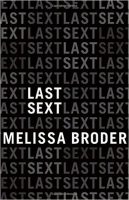
In her electric fourth collection, Melissa Broder penetrates the itch of existence and explores numberless deaths: the annihilation of self, the bereavement of love, the destruction of fantasy, the transmutation, even, of our ideas of dying. What emerges is an infinite series of false endings―each a trap door containing the possibility for alchemy, rebirth, and renewal. Part elegy, part confessional, part battle cry, Last Sext confronts both eternal longing and the mystery of mortality, with language hot, primal, and dark, as Broder’s fans have come to love.
This Number Does Not Exist by Mangalesh Dabral
[Paperback] BOA Editions Ltd., 168 pp., $16.95

An attentive critique on contemporary reality—modernity, capitalism, industrialization—this first United States publication of Mangalesh Dabral, presented in bilingual English and Hindi, speaks for the dislocated, disillusioned people of our time. Juxtaposing the rugged Himalayan backdrop of Dabral's youth with his later migration in search of earning a livelihood, this collection explores the tense relationship between country and city. Speaking in the language of deep irony, these compassionate poems also depict the reality of diaspora among ordinary people and the middle class, underlining the big disillusionment of post-Independence India
The Avant Garde Doesn't Die and Never Surrenders by Nina Cassian
[Paperback] New Meridian Arts, 74 pp., $12.99
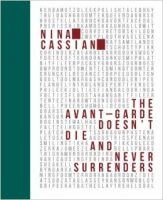
The late poet, Nina Cassian, knew the avant-garde’s joyful flights and chivalrous desperation. In this collection, she brings poetry to a higher level by inventing a new language that is funny and challenging, imaginative and unique in force and grace. Framed from within by Nina’s delightfully witty drawings, this book collects her most famous avant-garde poems, written over six decades. Cassian's decades of song set bodies and hearts in the enchanted state that flourishes above and below the edicts of dullness and the precincts of censure. Her glossolalic ease and ecstatic insouciance are among the finest arrows in poetry's quiver. – Andrei Codrescu
Melissa Broder penetrates the itch of existence and explores numberless deaths: the annihilation of self, the bereavement of love, and more.
Correspondences
Interview with Harmony Holiday
by Natalya Anderson
Harmony Holiday does not stand on her mark. She is a dancer, choreographer and poet, and while she craves the discipline of these artistic kingdoms, she is not so much put off by their most archaic structures as indifferent to them. As the daughter of celebrated musician Jimmy Holiday, she does hold father-figures of jazz, dance and poetry near, as if – whenever she feels it suits the tone of her work – she could pour them a drink and have them reveal their secrets. But that’s as far as Harmony lets old worlds dictate how she tells stories. Read a few of her poems and you feel how much she lets history play through her heart, through her stance on reality.
How Gardening Makes This Poet More Observant
by Mary Jo Brooks

Ross Gay is passionate about poetry, gardening and basketball. He pauses when asked if he sees a connection between the three. “I guess you could say that I think all three things alter our notion of time,” he said. “There’s something about beautiful moments in sports that alters our experience of time. And I’d say the same thing about poetry and gardening. Gardening slows me down. I want to stop and observe everything.”
Ross Gay is passionate about poetry, gardening and basketball.
Envoi: Editor’s Notes
The discussion above of confessional poetry puts me in mind of one of my favorite confessional poets, who, oddly, is not named in the essay: W. D. Snodgrass, whose first book, Heart's Needle, won the Pulitzer Prize in 1960. The embrace of the detritus of the private life, once novel and controversial, that was the hallmark of confessional poetry, now seems commonplace and downright reasonable as grist for the poem.
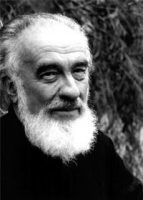
Mementos, 1
W. D. Snodgrass
Sorting out letters and piles of my old
Canceled checks, old clippings, and yellow note cards
That meant something once, I happened to find
Your picture. That picture. I stopped there cold,
Like a man raking piles of dead leaves in his yard
Who has turned up a severed hand.
Still, that first second, I was glad: you stand
Just as you stood—shy, delicate, slender,
In that long gown of green lace netting and daisies
That you wore to our first dance. The sight of you stunned
Us all. Well, our needs were different, then,
And our ideals came easy.
Then through the war and those two long years
Overseas, the Japanese dead in their shacks
Among dishes, dolls, and lost shoes; I carried
This glimpse of you, there, to choke down my fear,
Prove it had been, that it might come back.
That was before we got married.
—Before we drained out one another’s force
With lies, self-denial, unspoken regret
And the sick eyes that blame; before the divorce
And the treachery. Say it: before we met. Still,
I put back your picture. Someday, in due course,
I will find that it’s still there.
“I happened to find / Your picture. That picture. I stopped there cold, / Like a man raking piles of dead leaves in his yard”– W. D. Snodgrass